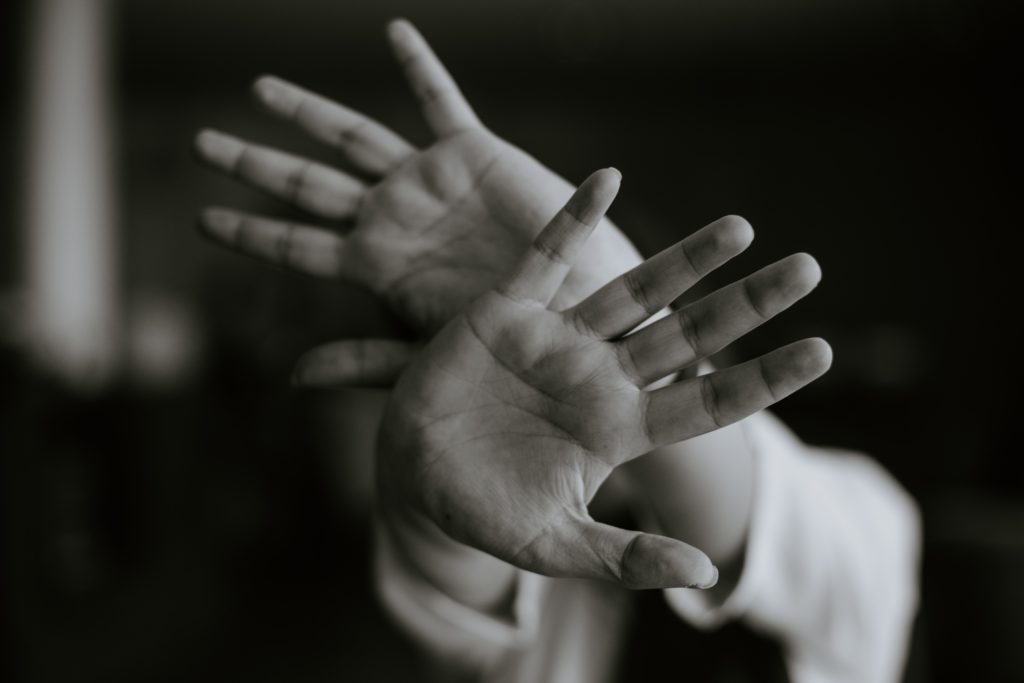
Introduction
Anxiety can be a stressful condition that stops people from living life to the fullest. Unfortunately for a lot of us the demands of highly stressful jobs don’t make it any easier. Fortunately there are many ways that you can deal with the stress and pressures that often accompany anxiety. Here is a list of 11 ways to help you deal with anxiety.
1. Identify Triggers

Identify the triggers to the anxiety symptoms as in asking yourself where, when, or with whom do I experience these symptoms? This will help you narrow the times and places that you experience anxiety. For instance, do you feel it in the morning when going to work or school? Do you experience it out in public? Do you experience it when having to turn in work to your boss?
Just knowing your triggers can help you develop an action plan on how to effectively deal with them. When you identify your triggers, also notice what’s going on in your mind. Is it something your picturing, or is it something that you are saying to yourself?
2. Adjust the Picture and Sound
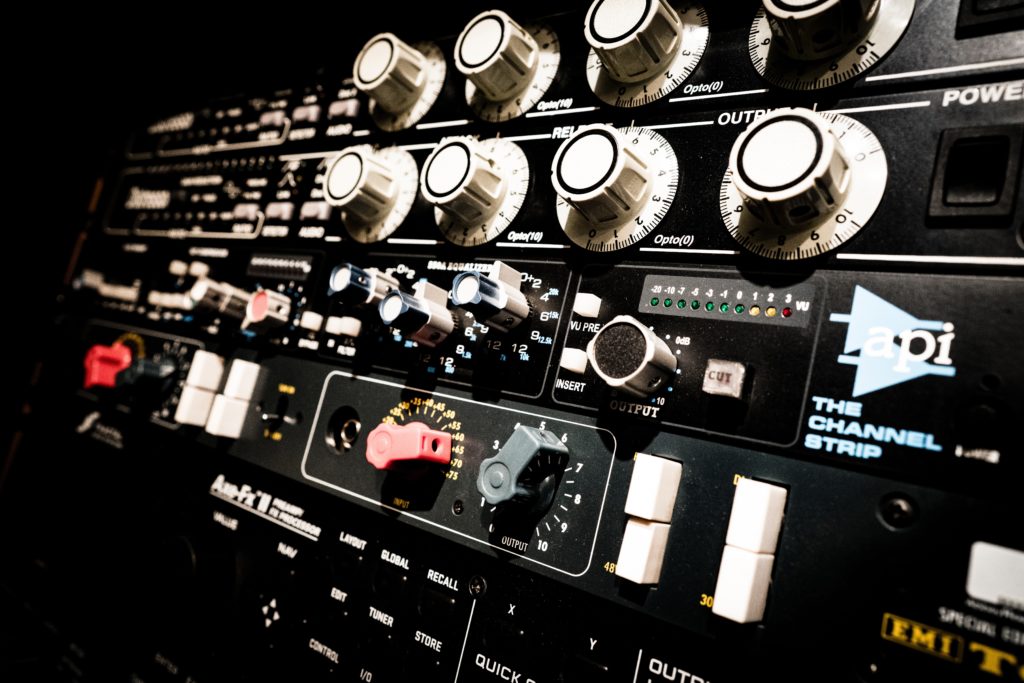
Once you notice what is going on internally you can make changes. For instance, if it is a picture or movie that you are imagining, notice where it is located in your visual space. Then notice what happens when you push that image so far away that it looks like a tiny little speck. If it is a voice or sound, imagine that you have a volume knob. On a scale of 1 to 10 notice what level the volume is at.
For example, if it’s at a 5 what happens when you turn that volume knob down to a 4? Then turn it to a 3. Then turn it down to a 2. Keep turning it until the volume is so low that you can barely hear it. If it is a feeling in your body, notice where it is located.
If it had a color, what color would it be? Does it have a temperature or a movement? Once you notice this, imagine that you can spin the feeling in a different direction. Keep spinning the feeling faster and faster; continue to spin the feeling faster and faster until it changes colors. Then check in with the anxiety and notice how strongly you feel it. Repeat the process until you feel like you are calm and relaxed.
3. Heat Exposure

Heat exposure such as the sauna or Jacuzzi is an excellent way to distress from anxiety or stress. When you go into a heated room such as a sauna, it allows your muscles to relax and for your mood to increase. Not only does the sauna help with Anxiety, it can help with other mood disorders such as depression.
One visit to the sauna can have you feeling relaxed in no time. Heat exposure also aids with boosting your immune system to prevent colds and other unpleasant conditions. According to https://health.usnews.com/wellness/articles/2018-01-26/5-reasons-to-hop-in-a-sauna-asap getting in the sauna can also assist with lowering one’s blood pressure if the person has regular visits to the sauna.
4. Exercise
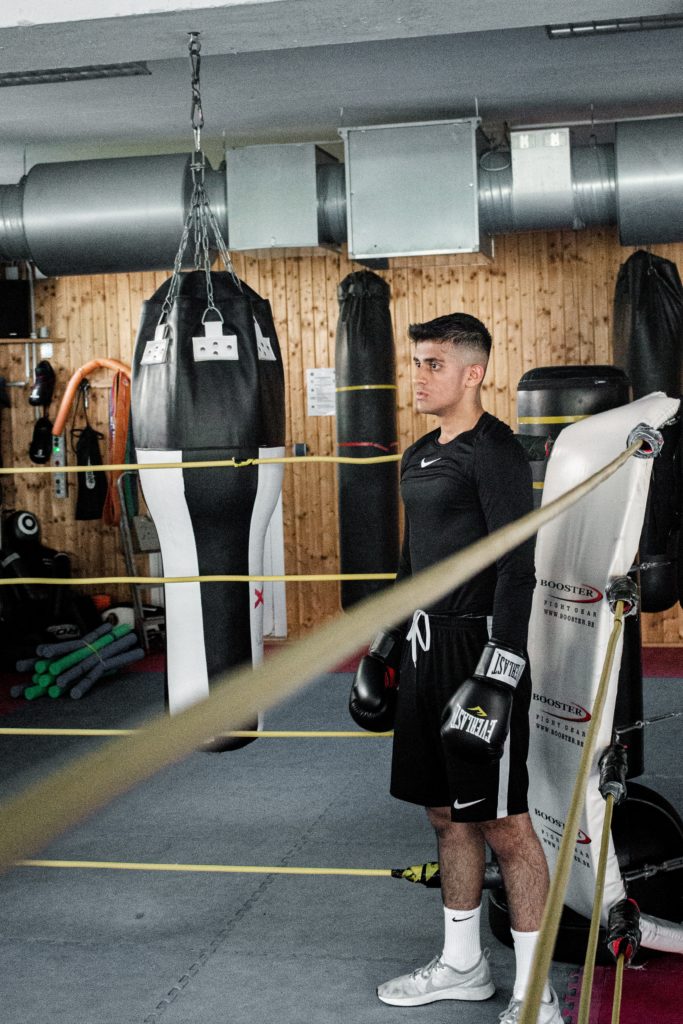
Exercise is another great way to help manage anxiety. Anything that gets your body moving and your heart rate up is great for decreasing stress, increasing mood, and increasing overall self-esteem. Exercise helps by releasing tension and releasing endorphins which are your body’s natural feel good chemicals.
Exercise such as jogging, High Intensity Training, the elliptical, or speed walking are good exercises. According to https://www.webmd.com/depression/guide/exercise-depression endorphins trigger a positive feel in the body similar to morphine but it’s all natural. Regular exercise also helps with weight management, boosting the body’s immune system, and overall confidence.
5. Meditation
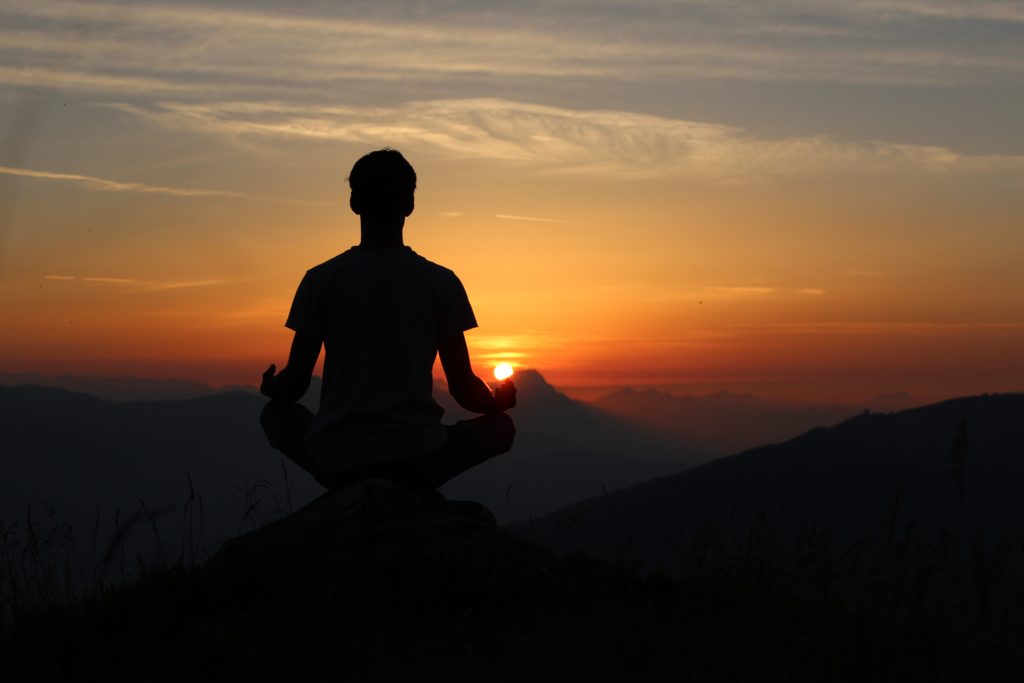
Meditation is a great way to reduce anxiety. Meditation allows a person do unplug for the chaotic world around us and enjoy a moment of solitude. Meditation allows you to slow down the thoughts to reduce worrying thoughts and fears in your mind and enjoy a state of calm and relaxation.
Meditation also allows you to release stress that you have been carrying throughout the day. When you quiet the mind from fears, from focusing on the past, or stressing about the future, you get to enjoy a soothing calmness. While mediating it’s best to stay focused on your breath because it means that you are staying in the present. By staying in the present, you naturally reduce your anxiety levels.
6. Deep Breathing

Deep breathing is a great way to change your emotional state. Take in a deep breath through your nose. Hold it for a couple of seconds and then breathe out through your mouth. Do a total of breathing in and out 30 times and you will feel deeply relaxed in no time. Deep breathing stimulates the mind and promotes calmness.
According to https://timesofindia.indiatimes.com/life-style/health-fitness/fitness/advantages-of-deep-breathing-exercises/articleshow/19213960.cms deep breathing can act as a natural painkiller, improve blood flow, increase energy levels, reduce inflammation, Stimulate the lymphatic system, and detoxify the body.
7. Going For A Walk

Going on a walk is an excellent way to help with anxiety. Sometimes due to the chaotic nature of our lives, we may need sometime do get away from the stress and clear our mind. Going for walks can actually help with shutting down the anxious part of the brain because that part of the mind now needs to focus on the new task which is walking.
Another benefit of walking is that it changes how you breathe; due to most anxiety symptoms being the result of hyperventilating, walking forces the body to breathe in a way that promotes increase blood flow and countering anxiety symptoms.
8. Question the Symptoms

Questioning your symptoms and feelings is a very powerful way to loosen the grip that anxiety has on your life. Similar to tip number 1 but instead of writing the triggers, write the thoughts and feelings that accompany the symptoms. Question the symptoms by asking how would you know if that thought was false and begin writing as much evidence as you can for each thought.
Doing this on a regular basis will have a very empowering effect on your day to day life. By doing this you are addressing the beliefs that drive anxiety. For more information on how beliefs affect your life check out this article on beliefs. (Beliefs and the role they play in our lives).
9. Journaling
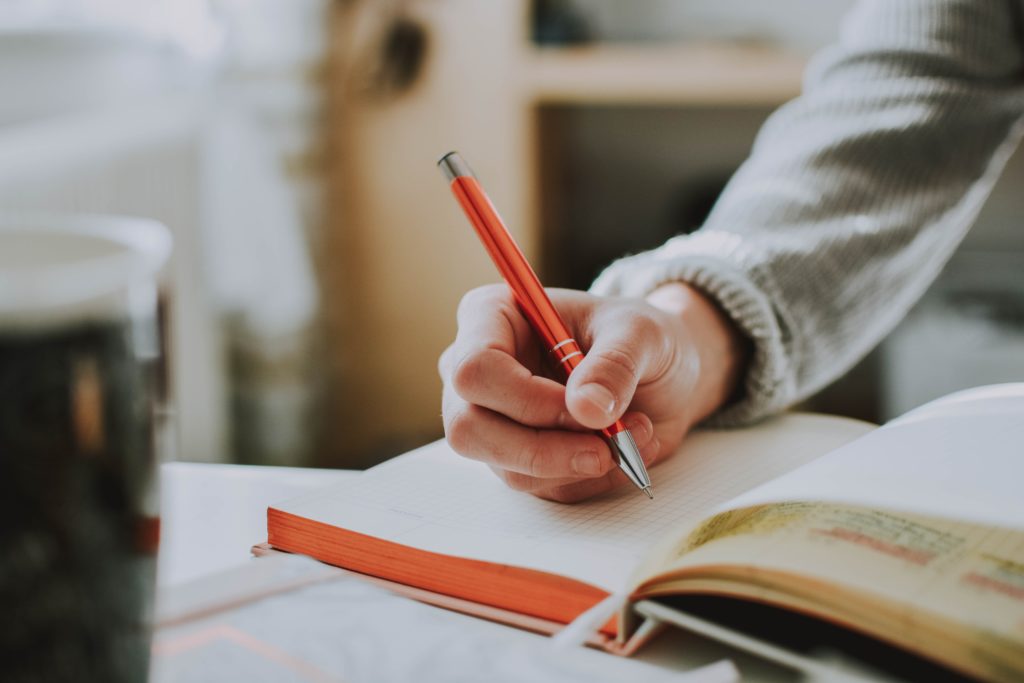
Journaling is a very effective way to take control of your mental states. Unfortunately, with anxiety it involves a lot of rehearsing emotions and states that you don’t want. The great thing about journaling is that it creates a habit of rehearsing powerful emotional states. This journal involves 5 different pieces.
Affirmations
The first part of this journal is affirmations. When you think of affirmations, you likely think of phrases such as “I. am Wealthy” or “I am Worthy”. Think of whatever you would like to be as long as it’s realistic and write out the words in a journal. However, I also recommend not just writing the words but also write down what images, sounds, and feelings would accompany being that affirmation. This makes affirmations much stronger and more realistic.
Happy Memories/Gratitude List
Secondly the journal involves writing out happy memories that you experienced in the past. Write these memories out in detail as if you were there now. The third part of this journal is the gratitude list. Write out everything in your life that you are grateful for such as people, possessions, experiences, education, having a roof over your head, etc. Gratitude can greatly help a hopeless feeling situation feel much better.
Empowering Quotes
Fourth is writing out empowering quotes or messages that you really like. This can create a good habit of building new empowering beliefs. Quotes like “the only time you should revisit the past is to revisit pleasant, happy, and peaceful times” or “you must never be fearful about what you are doing when it is right.”
Desired Emotional States
The fifth and final part of the journal is writing out desired emotional states that you would like to experience on a more regular basis. For example, if you wanted to experience more passion, write out in detail what it’s like when you are passionate. What lets you know that you are experiencing passion? What do you see, what do you hear, and what do you feel when you are experiencing passion?
Write out what would you have to do to experience more passion. This is a very powerful way to experience life in a more fulfilling way. When working on this journal, only work on one or two sections a day. It could be overwhelming trying to do all of these in a day.
10. Aromatherapy
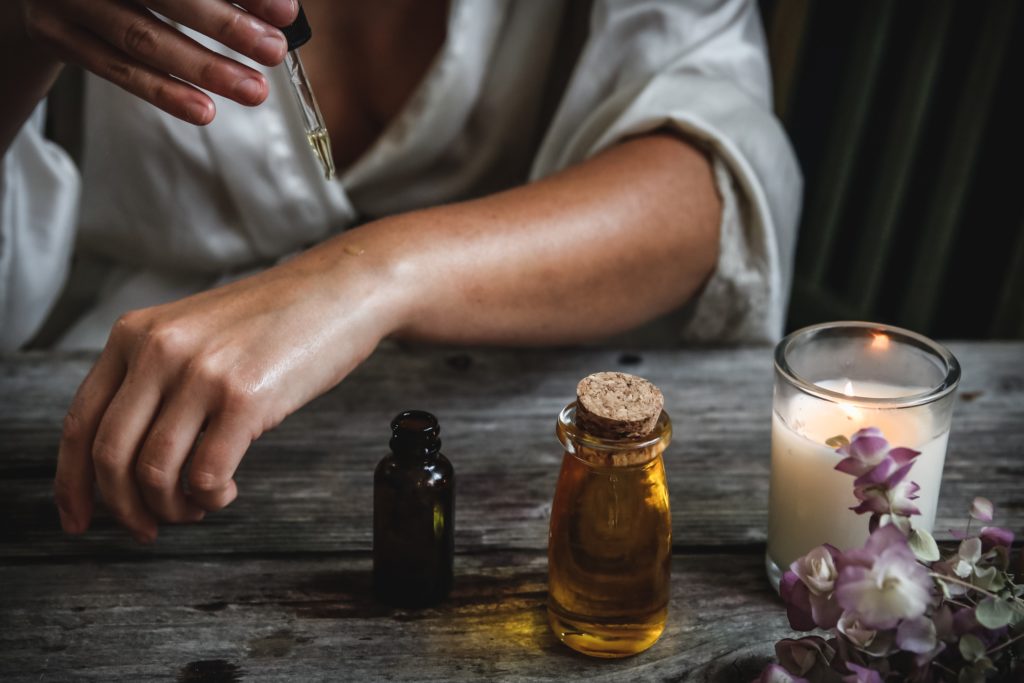
Aroma Therapy is the final tip of this list. There are several studies that show that aroma therapy is very effective for dealing with anxiety. You can use aroma therapy in several ways including buying a diffuser and using essential oils. With most of the essential oils you can also put them in bath water and enjoy a soothing and calming bath. Lavender is a very popular oil that can help not only anxiety, but also insomnia.
11. Therapist/Coach

Hire a therapist or coach who helps people deal with anxiety. The great things about hiring a coach is that you get the benefit of someone who is on the outside who can help you come up with a game plan to conquer anxiety. I would also recommend hiring someone who specializes in EFT (Emotional Freedom Technique) or Hypnosis due to the fact that these tools work with the unconscious mind to help clear the blocks that drive anxiety.
Conclusion
As long as you consistently practice these tips, you will continue to see improvements. Also feel free to use any methods that are not on this list that work for you. If you need extra assistance with dealing with anxiety email me at vincent.blow@thegenesishypnosis.com. Best of luck.
